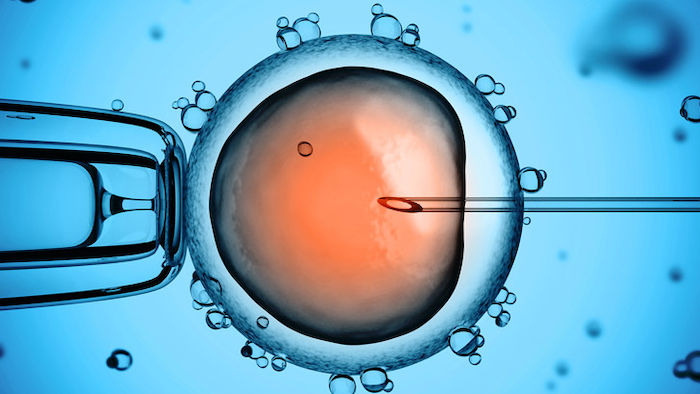The woman left out of a will because she was born by artificial insemination
One of Australia's richest families is locked in a legal dispute over their father's will, which left out a child conceived by artificial insemination.
The case raises the question - are children born by sperm donors or artificial insemination treated differently under the law when it comes to inheritance?
Samantha Smorgon is disputing her father, Robert Smorgon's, will which defined her as a step-child because she was conceived through artificial insemination.
She was born to Robert Smorgon's first wife. Robert Smorgon died in September 2019.
It is thought that the Smorgon family fortune is in the realm of $2 or even $3 billion. The family is most notable for establishing Smorgon Steel but has interests in many other businesses including meat, paper, chemicals, plastics, electronics, steel, equities, cosmetics, technology and horticulture.
Samantha Smorgon's affidavit says she is disputing $710,000 plus property and other investments in her father's will. Specifically, she argues several trusts set up to benefit the Smorgon family should be benefiting her too.
But, the fact that the will defines her as a step-child and the marriage between Robert Smorgon and her mother ended could mean Samantha Smorgon has very few rights under the law.
Peter Townsend, owner of Townsends Business and Corporate Lawyers, explained that in most states in Australia step-children lose their legal status as a person's child and any claims to an estate once a marriage is dissolved.
Under most state's laws, it doesn't really matter if the child considers the step-parent a parent long after the marriage to their biological parent dissolves, or if the step-child knew the step-parent for as long as they can remember. Once the marriage is over, the status as step-child is gone too in the eyes of the law.
"The question of whether they are a step-child or not is based in law," he said.
"A step-child ceases to be a step-child when the marriage dissolves, which is something a lot of people don't appreciate."
Things become even more complicated when the issues of sperm donors and artificial insemination are introduced.
However, if the artificial insemination happened while the couple was married then whether the child shares genetic material with the father or not, Townsend said, the law recognises the child.
"The husband could be considered a parent even though there is no genetic link between the father and child," he said.
A High Court ruling in 2006 clarified that a sperm donor could not be considered a sperm donor with no parental rights if they are an invested parent and involved in the child's life.
The documents Samantha Smorgon filed in court did not make it clear whether or not she was genetically related to Robert Smorgon, only referring to her conception as being through artificial insemination but not specifying whether a sperm donor was used.
"I have been told that I was conceived by artificial insemination. However, my father is named as my father on my birth certificate, and I am also named as his child on his death certificate," Smorgon said in an affidavit.
"Throughout my childhood, I was brought up believing that I was a child of my father. I believed my father was my biological father until my early teenage years. Indeed, my father treated me as if he was my natural father and I his child."
She added that even after she found out the truth about her conception, her father continued to behave as if she was his natural child.
"I have been told that my brother Stephen Smorgon was conceived in the same manner as me," Smorgon went on to say.
In the affidavit, Samantha Smorgon named 15 separate trusts which benefit the Smorgon family. She said that she has a right to be a beneficial object of each of these trusts, but suggested that she was cut off from the family's substantial wealth in Robert Smorgon's will because of the nature of her conception.
"To my knowledge I have never received an income or capital distribution from any of the trusts," Smorgon said.
"I have never been told that I am not a beneficiary of the relevant trusts."
She is seeking access to tax returns, trust deeds, profit and loss statements, balance sheets, bank statements and evidence of loans, investments and superannuation entitlements as well as any documents evidencing ownership by her father of any asset during the preceding seven years before his death.
Michael Meehan, chief financial officer of Escor Group (the group under which many of the Smorgon family trusts sit), filed an affidavit in response arguing that Samantha Smorgon is not entitled to see the documents.
He said seven of the trusts are "dormant" and two are passive, therefore not distributing income.
Meehan acknowledged the nine remaining active trusts: ESG Group Operating Trusts 1 and 2, Escor Property Trust, Escor Opportunity Trust, Escor Property Investment Trust, Eric Smorgon Family Trust, ES Group Finance Trust and ESG Group Investments Trusts 1 and 2.
However, he argued that these trusts are involved in private equity deals, managed fund investments and property development and that sharing the requested documents would disclose commercially sensitive and confidential information.
A hearing for the matter is scheduled for February next year.
Get stories like this in our newsletters.



